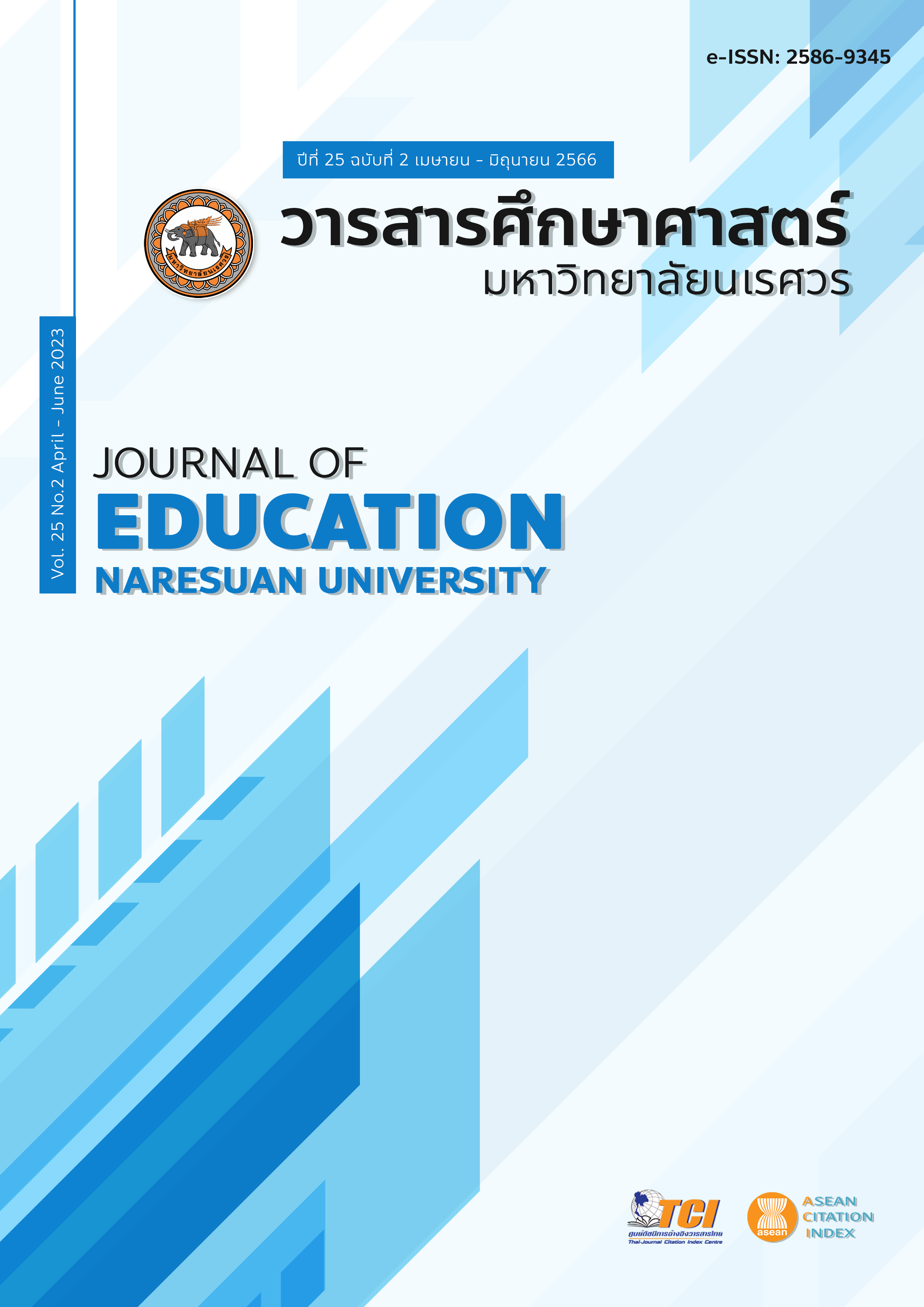THE DEVELOPMENT OF ENTREPRENEURSHIP MEASURING TOOL FOR UNDERGRADUATE STUDENTS IN HIGHER EDUCATION INSTITUTIONS การพัฒนาเครื่องมือวัดความเป็นผู้ประกอบการของนักศึกษาระดับปริญญาตรี ในสถาบันอุดมศึกษา
Main Article Content
Abstract
The objectives of this research were: 1) to study the components and indicators of entrepreneurship among undergraduate students in higher education institutions; 2) to create a tool to measure entrepreneurship of undergraduate students in higher education institutions; 3) to establish normal criteria for entrepreneurship of undergraduate students in higher education institutions. The sample consisted of 2,900 undergraduate students in both public and private institutions of higher education, which were obtained by multistage randomization. A tool used was a measure of entrepreneurship among undergraduate students in higher education institutions. The statistics used to analyze the data were normal standard score, exploratory factor analysis and confirmatory factor analysis were also performed. The results showed that;
1. The results of a study on the components and indicators of entrepreneurship among undergraduate students in higher education institutions the result of entrepreneurship a total of 7 components and 35 indicators.
2. The results of creating a tool to measure entrepreneurship of undergraduate students in higher education institutions. The investigator has created a tool is situational questions consisting of 7 components and 21 indicators. There were 38 questions. Quality check of the Entrepreneurship Scale showed that the discriminant power greater than 0.2 in every item. In terms of reliability was 0.896. In terms of structural validity analysis by confirmative factor analysis, it was found that the Entrepreneurship Scale of Undergraduate Students in Higher Education Institutions were consistent with the empirical data and structurally correct (Chi-square = 8.336, df = 11, p-value = 0.6830, RMSEA = 0.000, CFI = 1.000 and SRMR = 0.006).
3. The normal criteria for evaluating entrepreneurship of undergraduate students in higher education institutions were divided into 4 levels: High, with standard T scores greater than 59 or higher, with raw scores of 132 or more; Rather high levels by standard T scores between 51 and 58, raw scores between 122 – 131; Rather low levels, a standard T scores between 44 - 50, raw scores between 108 – 121; and Low levels is standard T scores of less than 43 a raw score of less than 109 or from 108 points or less.
Article Details

This work is licensed under a Creative Commons Attribution-NonCommercial-NoDerivatives 4.0 International License.
The owner of the article does not copy or violate any of its copyright. If any copyright infringement occurs or prosecution, in any case, the Editorial Board is not involved in all the rights to the owner of the article to be performed.
References
Bolton, D. L., & Lane, M. D. (2012). Individual entrepreneurial orientation: Development of a measurement instrument. Education and Training, 54(2-3), 219-233.
Canuzakov, K., Geri, S., Demirhan, B., & Tekeli, S. C. (2017). Entrepreneurship Characteristics of University Students who take ‘Physical Education and Sport’ Education. International Journal of Humanities and Social Science, 7(2). 157-165.
Cheevapruk, S., Kittisaknawin, C., & Deesawadi, D. (2018). Direction toward entrepreneurial university by organization development. Modern Management Journal, 16(1), 219-227. [in Thai]
Gorostiaga, A., Aliri, J., Ulacia, I., Soroa, G., Balluerka, N., Aritzeta, A., & Muela, A. (2019). Assessment of entrepreneurial orientation in vocational training students: Development of a new scale and relationships with self-efficacy and personal initiative. Front Psychol, 14(10), 1125. DOI: 10.3389/fpsyg.2019.01125.
Kanjanawasee, S. (2009). Research methodology (7th ed.). Bangkok: Chulalongkorn University. [in Thai]
Office of the Higher Education Commission. (2012). Business incubator support program in higher education institutions. Retrieved from http://www.mua.go.th/users/bphe/bs/ubi.html [in Thai]
Ritcharoon, P. (2012). Research in educational administration for educational quality development. Bangkok: Phranakhon Rajabhat University. [in Thai]
Roux, I. L., & Bengesi, K. M. K. (2014). Dimensions of entrepreneurial orientation and small and medium enterprise performance in emerging economies. Development Southern Africa, 31(4), 606-624. DOI: 10.1080/0376835X.2014.913474
Saiyod, L., & Saiyod, A. (2000). Learning measurement technique (2nd ed.). Bangkok: Suweeriyasan. [in Thai]
Sisilia, K., & Sabiq, N. (2019). Analysis of individual entrepreneurial orientation and self-esteem toward entrepreneurial intention (case of business program students at Telkom University). Proceedings of the 3rd International Conference on Accounting, Management and Economics 2018 (ICAME 2018).
Schmidt, S., Bohnenberger, M. C., Panizzon, M., Marcon, S. R., Toivonen, E., & Lampinen, M. (2018). Students entrepreneurial behaviour: An eight-construct scale validation. International Journal of Entrepreneurship, 22(2), 1-20.


